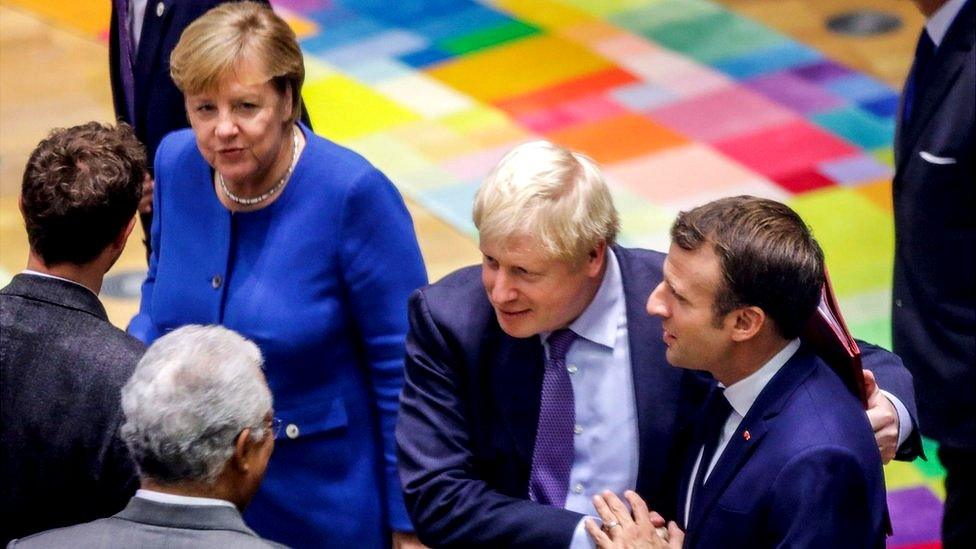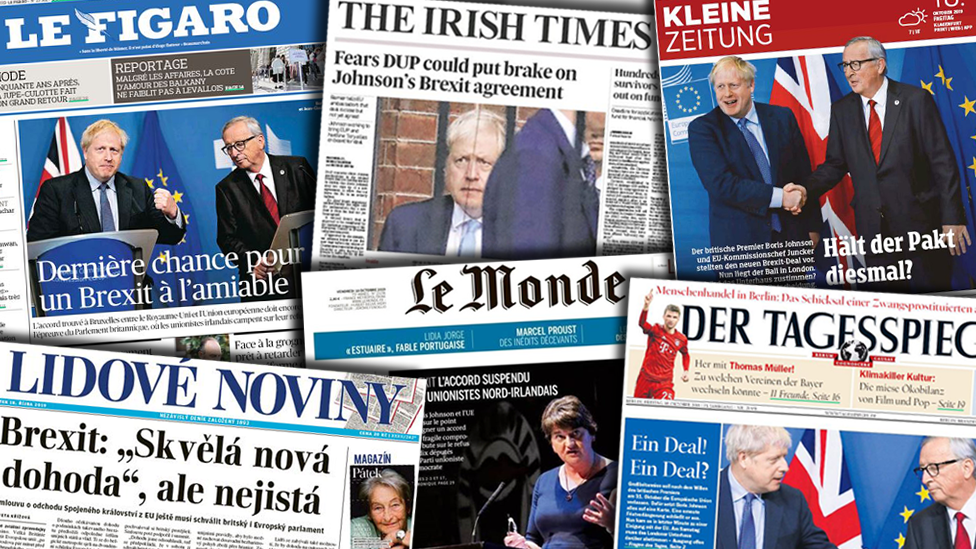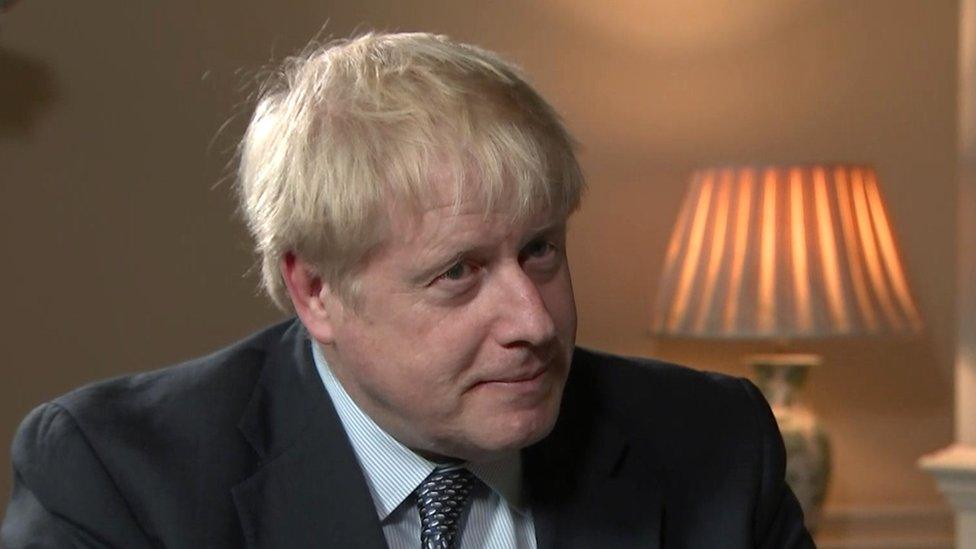Brexit: Europe’s leaders tune in for Parliament drama
- Published

Angela Merkel said the EU did not negotiate the Brexit deal to have it rejected
The mood among Europe's leaders was triumphant. They had a deal and as they left Brussels, everyone was happy. But will the EU's relief be short-lived?
Across the capitals of Europe all eyes will now turn to Westminster, for a rare Saturday session of Parliament to decide the fate of the revised Brexit deal.
"It is now a matter of putting faith in the British parliament to take its decision," said Germany's Angela Merkel.
They have been here before. Theresa May's deal was rejected three times by MPs. Yet more than 90% of the new deal is… Theresa May's deal.
The challenge of having a porous EU external border in Northern Ireland was the stumbling block that needed solving.
'He's colourful sometimes'
Finally the Eurosceptic Boris Johnson, famous for poking fun at EU bureaucracy, won generous praise from EU leaders at the Brussels summit.
Allow X content?
This article contains content provided by X. We ask for your permission before anything is loaded, as they may be using cookies and other technologies. You may want to read X’s cookie policy, external and privacy policy, external before accepting. To view this content choose ‘accept and continue’.

One of his fiercest EU critics on Brexit, French President Emmanuel Macron, spoke of Mr Johnson's "strategic thinking, his willingness to engage and a wish to persevere". He added that "he's colourful sometimes".
Summit chairman Donald Tusk warmly patted Mr Johnson on the shoulder and Luxembourg PM Xavier Bettel beamed at him - having only recently mocked him for dodging a press conference.
After more than three years of tortuous negotiations the EU believes it now has an innovative solution for the Northern Ireland border.
"The Queen will still be the Queen" - Leo Varadkar
In one-on-one talks with Irish Taoiseach (PM) Leo Varadkar, before the summit, Boris Johnson accepted that Northern Ireland could keep EU regulatory standards and have a unique customs inspection system.
It means in effect a customs border in the Irish Sea, with new checks on goods at Northern Ireland's ports and Belfast airport.
Goods destined for the Republic of Ireland - the EU - will come under the EU tariff regime.
The special arrangement was dictated by both sides' commitment to the 1998 Good Friday Agreement. That peace accord demands that there be no "hard" land border on the island of Ireland.
But the Brexit deal would take the UK out of the EU single market and customs union - commonly described as a "hard" Brexit.
What next?
So much for the legal technicalities. The big question now is whether Mr Johnson can get the deal through the House of Commons.
A day of high drama is expected, as the vote will be on a knife edge. The government's recent suspension of Parliament - ruled unlawful by the Supreme Court - angered many MPs.
There was discomfort among EU leaders when asked what they would do if Westminster rejected this deal.
Would they grant another, third, extension to the Brexit negotiations?
Mr Varadkar was asked if there was an EU Plan B. His reply: "Plan B is no deal. Let's hope that doesn't happen."
There was no guarantee of another extension, he said.
Crunching the numbers as MPs prepare for key Brexit vote
The pressure to meet the 31 October deadline is there in the summit conclusions, calling for the EU to prepare for the deal to "enter into force on 1 November".
The deal allows a transition period until the end of 2020. In contrast, a no-deal scenario would make the UK a "third country" overnight, subject to EU tariffs and other barriers immediately.
The EU's Donald Tusk did not rule out another extension. But President Macron said: "I don't think that a new delay should be agreed on. I think we need to end the negotiations and move on to talks about future relations."
A year is not much time for the EU to negotiate a free trade deal with the UK.
And the risk of a no-deal Brexit has not gone away.
Belgium alone could lose 42,000 jobs in the worst-case scenario, according to a Leuven Catholic University study. The port of Zeebrugge does about half of its trade with the UK.
Amid European sadness and frustration over Brexit, there is also some optimism.
Mr Varadkar said the EU had shown "enormous solidarity" with Ireland, and he called it a union "in which small states are protected". And Ulrich Ladurner, Brussels correspondent for Germany's Die Zeit daily, told the BBC: "Many Europeans feel Brexit has shown the strength of the EU".
Will MPs support Boris Johnson's new Brexit deal?
- Published18 October 2019

- Published18 October 2019

- Published19 October 2019